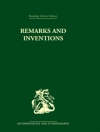Genealogies of Emotions, Intimacies and Desire excavates epistemologies which attempt to explain changes in emotional regimes from medieval society to late modernity. Key in this debate is the concept of intimacy. The book shows that different historical periods are characterized by emotional regimes where intimacy in the form of desire, sex, passion, and sex largely exist outside marriage, and that marriage and traditional normative values and structures are fundamentally incompatible with the expression of intimacy in the history of emotional regimes.
The book draws on the work of a number of theorists who assess change in emotional regimes by drawing on intimacy including Michel Foucault, Eva Illouz, Lauren Berlant, Anthony Giddens, Laura Ann Stoler, Anne Mc Clintock, Niklas Luhmann and David Shumway. Some of the areas covered by the book include: Foucault, sex and sexuality; romantic and courtly love; intimacy in late modernity; Imperial power, gender and intimacy, intimacy and feminist interventions; and the commercialization of intimacy.
This book will appeal to students and scholars in the social sciences and humanities, including sociology, gender studies, cultural studies, and literary studies.












